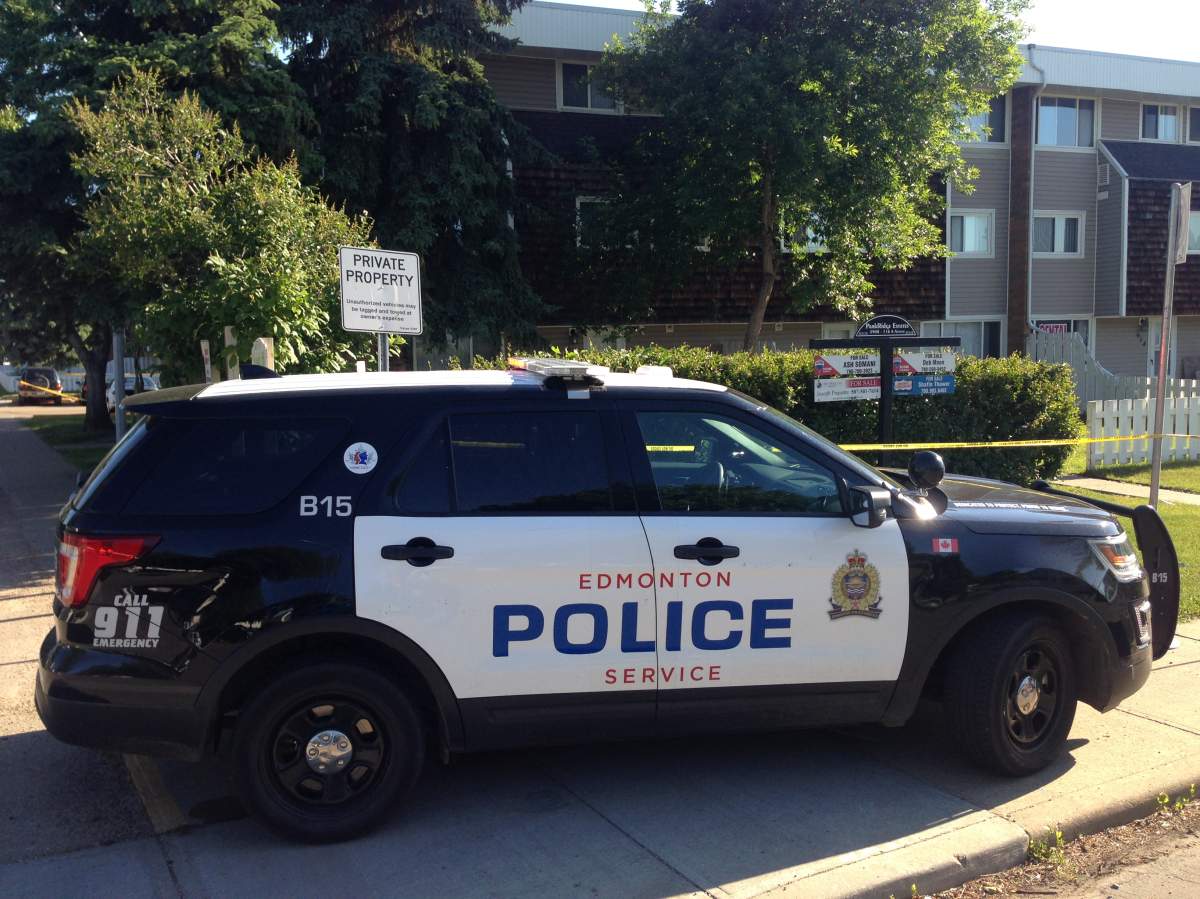A draft report from the Alberta Association of Chiefs of Police on standardizing the policy on naming homicide victims is now with the Office of the Privacy Commissioner.

It’s the result of work done by the police chiefs and the lawyers from their organizations over the last couple of months after some inconsistencies were discovered around the province.
Early in 2017, Edmonton police stopped naming victims unless there was an investigative reason to do so. The last homicide they refused to release the name in was April 23. However the in last eight homicides on file with the EPS, dating back to the latter part of April, and through May and June, all eight victims’ names have been given to the media.
READ MORE: As homicides pile up, deputy police chief calls Edmonton ‘safe city’
A subsequent death Friday morning at Park Ridge Estates near 29th Street and 116a Avenue, where a man’s body was found in the parking lot, is the ninth homicide since April and the 25th homicide of 2017.
It’s unclear if police will follow the same course in not releasing a name. An autopsy is scheduled for Tuesday.

Get breaking National news
“It’s funny, we had that exact conversation,” said EPS Chief Rod Knecht, who confirmed the draft policy is now with Jill Clayton’s office. He said it wasn’t the, “Consequence of some public pressure or the spotlight being shined on us? Not at all. At the end of the day we’ve got to follow the law and sometimes it’s unpopular to follow the law. It’s easier to ignore the law but we’re the police, we can’t ignore the law.”
Medicine Hat Chief Andy McGrogan said in an email we could expect something to be made public “in the next couple of weeks.” The association’s members held their first conference call on the subject on May 12.
READ MORE: Uniform policy on naming murder victims should be known in 3-4 weeks: Alberta police chiefs
“There clearly was differences in the way we were applying the release of homicide victims’ names across the province,” Knecht said in an interview.
“We landed on some consensus. We developed a policy around that consensus. That has now gone to the privacy commissioner which is probably the best place for it to go. They’ll come back and say, ‘this is a policy, this is a good policy, this is how the policy should be interpreted and this is how all police across Alberta should be doing this.’”
“If you back up the bus a little bit I think our interpretation was a good interpretation, but let’s see what the privacy commissioner comes back with.”
READ MORE: Edmonton 2016: police say near-record homicide rate has become normal
- New charges against man with al-Qaida ties as lawyer raises mental health concerns
- Canadian fugitive arrested in Spain over major Desjardins data leak
- Man appealing human smuggling convictions can represent himself: U.S. judge
- Supervised consumption sites aren’t linked to increased crime: McGill study
The string of the EPS naming eight consecutive homicide victims happened shortly before the AACP began discussing the policy.
“No I wouldn’t say we’re coming around to their way,” Knecht said.
“I would say we’re still applying the law the way we believe it should be applied. At the end of the day, the police have to follow the law. I believe there may have been some inconsistencies in the interpretation of that law. I think this process will clean it up, but no, we haven’t changed our approach at all.”
It’s not clear when Clayton will weigh in on the draft policy. Knecht said the chiefs don’t want to pressure her. “Obviously sooner is better but I know they’ve got a process and I don’t know how busy they are. I assume they’re as busy as we are.”
In recent years, RCMP have also stopped naming victims, citing privacy laws.
A request for comment from Clayton’s office was made, but there has been no response.












Comments